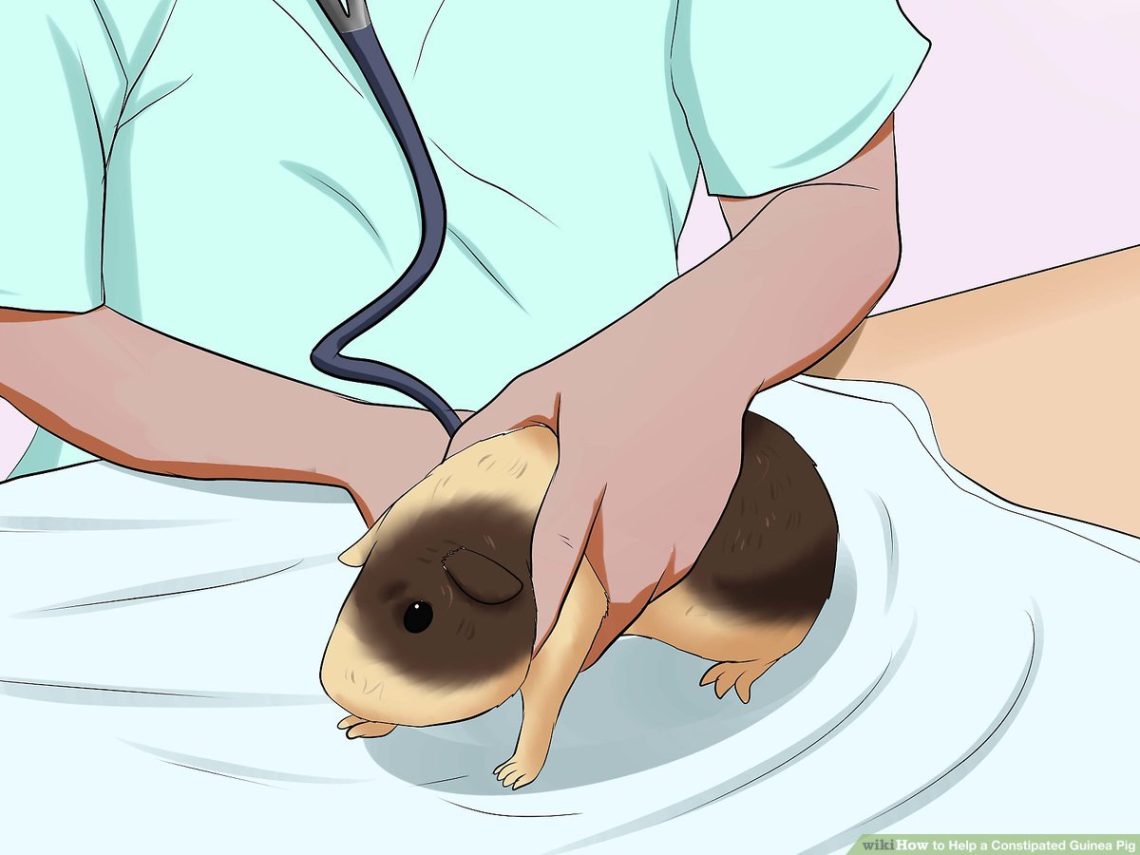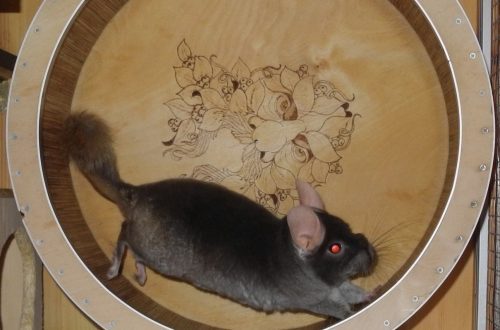
constipation in guinea pig
The most common cause of constipation in a guinea pig is a dietary disorder and an unbalanced diet. In this case, it is not difficult to fix the problem if you start dealing with it in a timely manner. However, not only dietary disorders can lead to constipation, but also serious diseases. Let’s talk about this in our article.
Contents
Constipation in a guinea pig: symptoms
Before moving on to the causes of constipation in guinea pigs, let’s look at its symptoms.
The first symptom is, of course, the lack of defecation. You may notice that the guinea pig tries to go to the toilet several times during the day, but to no avail. To the main symptom are added lethargy, restlessness and refusal to eat. If the mumps has practically stopped moving and sits with a hunched back all the time, the process of intoxication may have begun or intestinal obstruction has formed. In this case, the pet must be shown to the veterinarian as soon as possible.
In addition to the complete absence of feces, defecation may be partial. Mumps may rarely go to the toilet (less than once a day), and the feces will be dry or very dense in consistency. A gilt with partial defecation disorders has a hard belly, and bloating is often observed. Experiencing discomfort or even pain, she may lose her appetite, become restless and not give in to her hands. The anal opening often becomes more prominent when constipated.
If nausea has joined the above symptoms, then we are probably talking about serious diseases of the gastrointestinal tract or torsion of the gallbladder.
What should I do if my guinea pig is constipated?
If a rodent starts vomiting, contact a specialist immediately, otherwise the pet’s life will be in danger.
In the presence of several symptoms and the duration of constipation for more than 2 days, an examination by a specialist is also required.
In case of mild disorders of the gastrointestinal tract due to an unbalanced diet, you can try to fix the problem yourself. Choose the right food for the pig and do not break the diet. And also make sure that there is always fresh drinking water in the drinker. If the measures taken do not bring results, contact your veterinarian.
Guinea pig constipation: causes
Various diseases or disorders in the diet (malnutrition in general) can cause disruption of the gastrointestinal tract. For example, diseases of the gastrointestinal tract (including cancer), cysts in the gastrointestinal tract, an excess of the gallbladder, weakening of the muscles of the intestine, etc. can lead to constipation. Such serious ailments require medical treatment, and any initiative can be fatal.
Fortunately, guinea pigs have fairly good health, and serious diseases are not so common in them. But improper feeding is a common practice in keeping guinea pigs. And this is the case when the mistakes and inattention of the owners cost defenseless pets health.
The following feeding errors can lead to constipation:
– improperly selected food,
– too much dry food
– serving food from the table
– overfeeding (feed the pig in small portions no more than 4 times a day),
– a long interval between meals,
– lack of water in the drinker and, as a result, lack of fluid in the body.
Constipation in a guinea pig: prevention
The causes of constipation determine its preventive measures.
In order for your pig not to face such an unpleasant problem, her diet must be carefully balanced. It is very easy to make a mistake with the balance of components when building a diet on your own. Therefore, the most reliable solution is ready-made balanced feed, which contains all the components necessary for a guinea pig.
What qualities should such food have?
- Guinea pigs are herbivorous rodents, and the basis of their food should be hay. Moreover, hay of the 2nd cut is desirable (as, for example, in Fiory Micropills Guinea Pigs feed). It is richest in the useful fiber that is best absorbed by the body of herbivorous rodents (NDF-fiber 43,9%, ADF-fiber 25,4%). It is better if the ruler does not contain grain, because. grain does not meet the natural nutritional needs of herbivorous rodents and is difficult to digest in large quantities.
- The complex of nutraceuticals in the composition of the feed and enrichment with vitamins and chelated minerals will help strengthen the immune system and ensure the proper functioning of the body’s systems. This property will be the advantage of the line.
- As an additional advantage of the finished diet, applying quartz to the granules can act. This completely safe measure promotes the natural grinding down of a guinea pig’s ever-growing teeth.
- As for the form of feed, the ideal option is pellets (granules). The composition of the granules is carefully balanced, and the guinea pig will eat them whole, receiving all the substances she needs daily. Different feed mixtures, on the contrary, give the rodent a choice. That is, the pig can eat the most appetizing components for it and ignore the others. Sooner or later, the consequences of such “selectivity” will be a lack of vitamins and excess weight.
Before purchasing food, do not forget to check its expiration date and the integrity of the packaging!
Take care of your pets. Their health is in our hands.





